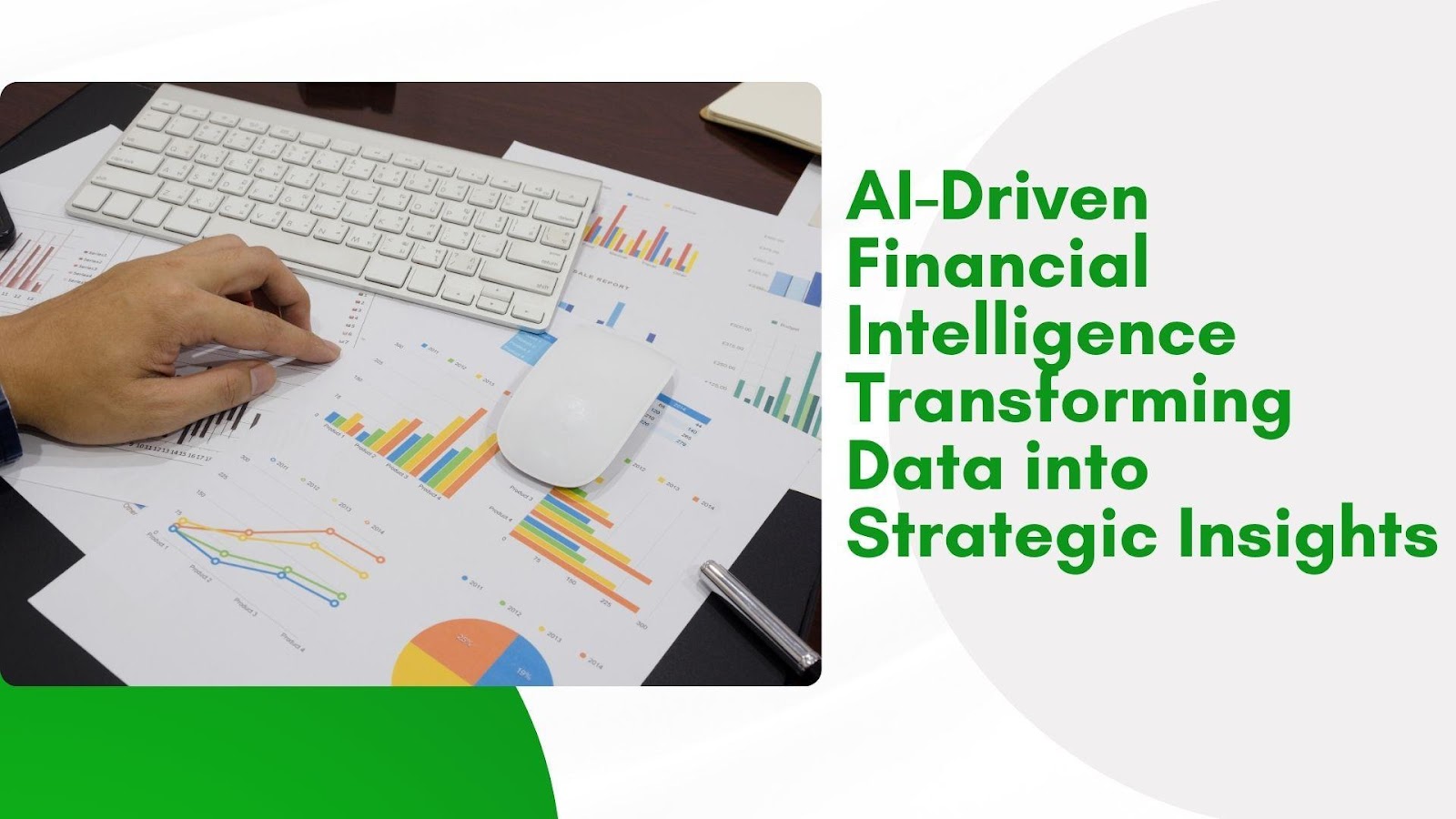Share Share Share Share Email The integration of Artificial Intelligence (AI) into Business Intelligence (BI) and Financial Data Visualization is revolutionizing how financial institutions analyze data, assess risks, and make informed decisions. In his recent work, Mallikarjun Reddy Ramasani explores these advancements, providing an in-depth look into AI-driven financial transformation. His research highlights the growing role of AI in streamlining financial analytics, ensuring better decision-making and operational efficiency.
AI-Powered Business Intelligence: A Paradigm Shift Traditional Business Intelligence tools relied on static reports and historical data analysis. However, AI-driven solutions have introduced dynamic, real-time analytics, allowing financial institutions to predict market trends and make data-driven decisions with greater accuracy. By leveraging machine learning and deep learning techniques, financial professionals can now detect patterns, assess risks, and automate processes that were previously labor-intensive.

Additionally, AI is enabling businesses to integrate unstructured data sources, such as customer feedback and social media insights, to create more comprehensive financial analyses. The Evolution of Financial Data Visualization Financial data has always been complex, but AI-driven visualization tools have made it more accessible. Unlike traditional methods, AI-powered systems provide interactive dashboards, real-time insights, and predictive models.
These innovations enhance financial forecasting, market analysis, and risk management, allowing organizations to make strategic decisions based on actionable data rather than mere intuition. Moreover, the accessibility of financial data through AI has empowered smaller institutions and individual investors, bridging the gap between expert-level financial analysis and general market participation. Machine Learning in Risk Assessment and Fraud Detection One of AI’s most significant contributions to the financial sector is its ability to improve risk assessment and fraud detection.
Machine learning models analyze large volumes of financial transactions, identifying irregularities and potential threats faster than human analysts. These systems continuously learn from new data, refining their accuracy in detecting fraudulent activities and minimizing financial losses for institutions and customers alike. AI-driven security systems are also enhancing cybersecurity, safeguarding sensitive financial data from emerging cyber threats.
Deep Learning for Market Prediction and Portfolio Management Deep learning algorithms are reshaping investment strategies and portfolio management. These advanced models analyze historical and real-time market data, identifying trends and investment opportunities with remarkable precision. AI-powered predictive analytics is helping financial professionals make well-informed decisions, reducing risks and optimizing returns for investors.
Automation and Decision Support Systems The rise of AI-driven decision support systems has enabled financial organizations to automate critical processes, from credit scoring to customer service. AI models assess creditworthiness more accurately by analyzing alternative data sources, making financial services more accessible to a broader population. Additionally, AI-powered chatbots and virtual assistants are enhancing customer interactions, offering personalized recommendations and support around the clock.
AI’s ability to analyze customer behavior and preferences is also allowing financial institutions to tailor services more effectively, improving overall customer satisfaction. Challenges in AI Implementation Despite its many advantages, AI adoption in financial services comes with challenges. Data privacy, regulatory compliance, and the need for robust governance frameworks remain significant concerns.
Financial institutions must develop strategies to ensure ethical AI implementation while maintaining transparency in their decision-making processes. Ensuring that AI models remain unbiased and adhere to regulatory standards is essential for long-term success. The Road Ahead for AI in Finance The financial sector is poised for continuous AI-driven innovation.
Future advancements will likely focus on improving data quality, enhancing algorithm transparency, and refining AI governance models. As financial institutions continue to embrace AI, the emphasis will be on balancing automation with human oversight to maximize efficiency while mitigating risks. In conclusion, AI-driven financial intelligence is reshaping the industry, offering unprecedented opportunities for data analysis, risk assessment, and decision-making.
As highlighted by Mallikarjun Reddy Ramasani , AI’s role in financial analytics is more than just a technological shift; it is a fundamental transformation in how financial institutions operate. By implementing AI responsibly and strategically, organizations can harness its full potential, ensuring a more efficient and data-driven financial ecosystem. The coming years will likely see even greater collaboration between AI and financial services, paving the way for more intuitive, secure, and innovative financial solutions that benefit both businesses and consumers alike.
Related Items: Business Intelligence (BI) , Mallikarjun Reddy Ramasani Share Share Share Share Email Recommended for you Exploring the Growth and Trends in Business Software, Business Intelligence, and Business Process Management Markets Comments.
Technology

AI-Driven Financial Intelligence: Transforming Data into Strategic Insights

The integration of Artificial Intelligence (AI) into Business Intelligence (BI) and Financial Data Visualization is revolutionizing how financial institutions analyze data, assess risks, and make informed decisions. In his recent work, Mallikarjun Reddy Ramasani explores these advancements, providing an in-depth look into AI-driven financial transformation. His research highlights the growing role of AI in streamlining [...]The post AI-Driven Financial Intelligence: Transforming Data into Strategic Insights appeared first on TechBullion.















